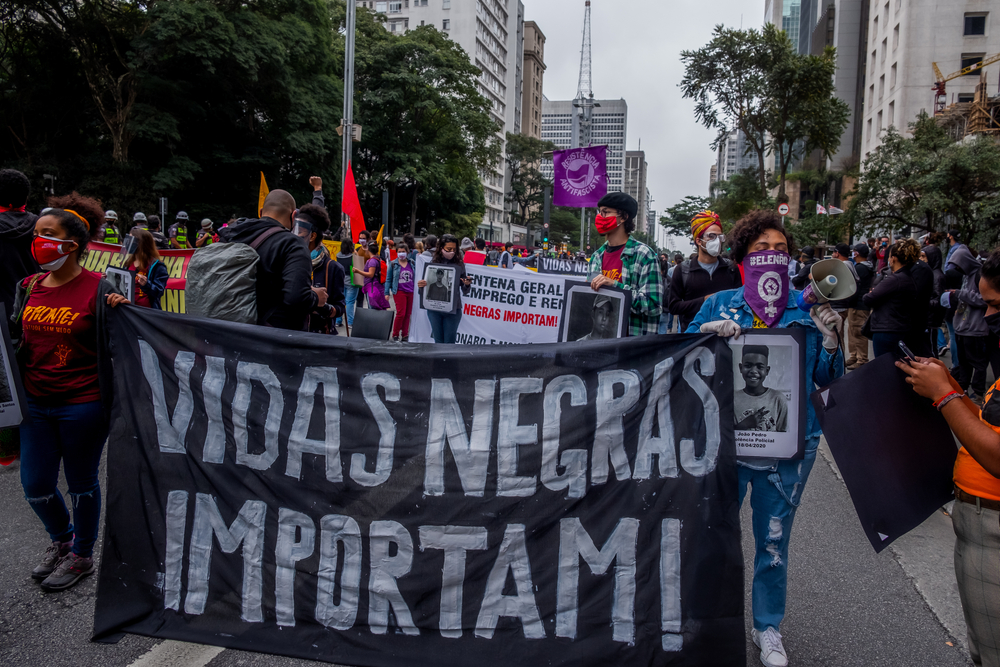Late January marks the beginning of Salvador’s summer festivals, where the streets come alive. Throughout his excitement, a contrasting reality simmers beneath the surface. Salvador, often hailed as the “Cidade da Alegria” (City of Joy), unfolds as a place where celebration and tragedy coexist. The recent and tragically familiar murder of Edmar Santos Costa, a 38-year-old doorman en route to work, exposes the dark side of the paradise myth that often envelops Brazil in global perception.
On the morning of January 6, 2024, Edmar’s daily route to work was cut short at the neighborhood bus terminal. After an altercation with a bus passenger, he was subsequently subdued by metro security guards, who witnesses say held Edmar down with their feet and knees on his back until he died. The disconcerting parallels to the widely publicized case of George Floyd in the United States underscore the brutality faced by black individuals, both at the hands of public and private security forces.
The delayed revelation of Edmar’s case, emerging 13 days after the incident, raises unsettling questions about transparency and accountability. The lack of timely information provided to Edmar’s family, coupled with attempts to obscure the circumstances surrounding his death, intensifies the urgency for justice.
Amidst the backdrop of Edmar’s tragedy, Salvador prepares for the return of the Iemanjá’s Day festival, an event deeply entrenched in Afro-Brazilian traditions. This stark contrast represents the dichotomy within Salvador’s social fabric—a city that embraces Black cultural celebrations while grappling with the harsh realities of systemic violence.
The annual Iemanjá festival is an Afro-Brazilian religious homage to the Yoruban deity of the sea. Originating as a local celebration in 1923, born out of a need to seek guidance from the orixás due to a scarcity of fish, the festival has transformed into a global spectacle.
As the largest Black country outside of Africa, Brazil and particularly Salvador, with its Afrocentric roots, hosts tens of thousands who converge for the Iemanjá’s Day festivities. Celebrated annually on Feb. 2, the festival pays tribute to Iemanjá, the goddess of the sea and a vital deity in the widely practiced Candomblé religion. Devotees of Candomblé, a religion deeply ingrained in Afro-Brazilian culture, and tourists alike gather in the Rio Vermelho neighborhood to express gratitude for blessings received in the past year and seek divine favor for the future.
The festival plays a vital role in preserving Africa’s traditions in Brazil. Historically, Afro-Brazilian faiths were criminalized by the Brazilian government and have only survived through the use of religious syncretism as a form of resistance. Against the backdrop of the Iemanjá festival, the murder of Edmar Santos Costa has many Afro-Brazilians reflecting on the tragic contradictions of the nation.








